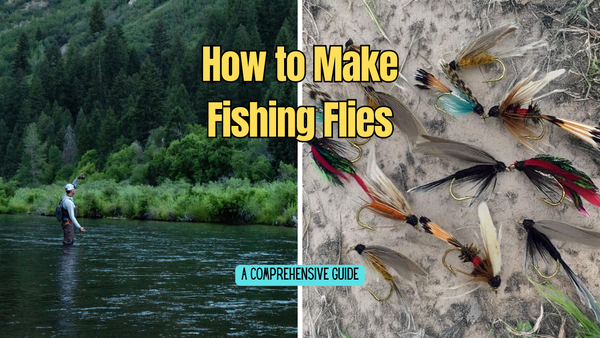When it comes to choosing the right tent for your camping needs, the debate between canvas tents and regular (often nylon) tents is a hot topic among outdoor enthusiasts. Both have their unique advantages and disadvantages, and the choice often boils down to personal preference and specific camping requirements.
Key Takeaways:
- Canvas tents are known for their durability, insulation, and ability to withstand harsh weather conditions, making them suitable for extended camping trips.
- Nylon tents are lighter, more affordable, and easier to pack, which is ideal for backpacking and short-term camping.
- The decision between a canvas tent and a nylon tent should be based on factors such as camping duration, weather conditions, and transportation options.

The Durability Debate: Canvas vs. Nylon
When it comes to durability, canvas tents often take the lead. Made from high-quality canvas material, these tents are designed to endure wear and tear much better than their nylon counterparts. The thick canvas fabric can withstand heavy rains and high winds without succumbing to damage. On the other hand, nylon tents, while also durable, may not offer the same level of resistance to harsh weather conditions over a long period.

Canvas wall tents, with their sturdy construction and thick poles, are particularly known for their longevity. They can serve as a reliable shelter for years, even when exposed to the elements regularly. This makes them an excellent option for frequent campers who need a tent that can absorb water and handle heavy duty use without deteriorating quickly.
Weathering the Storm: Protection and Insulation
One of the most significant advantages of a canvas tent is its ability to provide superior protection and insulation in various weather conditions. The canvas material is not only robust but also offers excellent insulation properties. This means that during cold weather, the warmth stays inside the tent, and in hot weather, the canvas allows for fresh air to circulate, keeping the interior cool.
Nylon tents, while they can be treated for weather resistance, often do not offer the same level of insulation. They are more prone to becoming uncomfortably hot in warm conditions and may not retain heat as well during cold nights. However, the breathable fabric of nylon tents can be a plus in high humidity environments, preventing condensation inside the tent.
The Weight Factor: Heavy Canvas vs. Light Nylon
Weight is a crucial consideration for many campers, especially those who need to carry their tents over long distances. Nylon tents are typically much lighter than canvas tents, making them a more suitable choice for backpacking trips where every ounce counts. The lightweight nature of nylon tent materials also makes them easier to pack and transport.
Canvas tents, due to their heavy-duty construction and thicker fabric, come with extra weight. This can be a drawback for those who prefer to travel light or have to hike to their camping spot. However, for car camping or camping trips where the tent will be set up in one location for a longer duration, the extra weight of a canvas tent is less of a concern.

Space and Comfort: Room to Breathe
Canvas tents, particularly bell tents and canvas wall tents, are often more spacious and comfortable than regular nylon tents. The high ceilings and wide footprints of these tents provide ample room to move around, store gear, and even accommodate a wood stove for heating and cooking. This makes them an ideal choice for large group camping or for those who prefer a more 'glamping' experience.
Nylon tents, while they can also be spacious, may not offer the same level of comfort as canvas tents. They are designed to be compact and efficient, which sometimes means sacrificing extra space for the sake of portability. However, for many campers, the ease of setting up a nylon tent and its suitability for a quick weekend getaway outweigh the need for a larger living area.
The Cost of Camping: Affordability and Value
When considering the cost, nylon tents are generally more affordable than canvas tents. The materials and construction of nylon tents make them a budget-friendly option for campers who do not require the ruggedness of canvas. For those just starting out or only occasionally camping, a nylon tent can provide the shelter needed without a significant investment.
Canvas tents, while more expensive upfront, offer better longevity and can be a more cost-effective choice in the long run for serious campers. The durable canvas material and construction mean that a high-quality canvas tent can last for many years, potentially saving money on replacements.
Maintenance Matters: Caring for Your Tent
Maintenance is an essential aspect of tent ownership, and both canvas and nylon tents have their specific care requirements. Canvas tents need to be thoroughly dried before storage to prevent mold and mildew, and they may require reproofing over time to maintain their water resistance. Nylon tents are generally easier to care for, as they dry quickly and are less prone to absorbing water.
However, the extra effort to maintain a canvas tent can be worthwhile for the benefits it provides. Properly cared for, a canvas tent can become a long-lasting companion for countless camping adventures.

Summary
Choosing between a canvas tent and a regular nylon tent depends on various factors, including the type of camping you plan to do, the weather conditions you expect to face, and your willingness to carry extra weight. Canvas tents excel in durability, weather protection, insulation, and space, making them suitable for extended stays and harsh conditions. Nylon tents offer the advantages of being lightweight, affordable, and easy to pack, ideal for short trips and backpacking. Ultimately, the right tent is the one that best meets your camping needs and preferences.

FAQs
Can canvas tents be used in hot weather conditions?
Yes, canvas tents can be used in hot weather conditions. The canvas material allows air to circulate, helping to keep the interior cool. Additionally, the natural insulation properties of canvas can protect against the heat of the sun.
Are nylon tents waterproof?
Nylon tents are often treated with waterproof coatings to make them water-resistant. However, they may not be as waterproof as canvas tents over time, especially in heavy rain or wet conditions.
How long does a canvas tent last compared to a nylon tent?
A high-quality canvas tent can last for many years, even decades, with proper care and maintenance. Nylon tents can also have a long lifespan but may not be as durable as canvas when frequently exposed to harsh weather conditions.
How long can you leave a canvas tent up?











